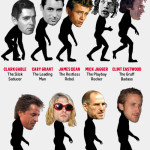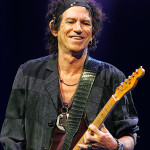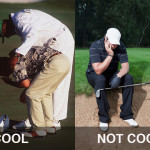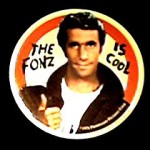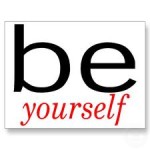Cool. You’ve either got it or you haven’t. Maybe you don’t care. Did these guys have it?
ACTION
I swear the next creep who calls me hoodlum…
ICE
You’ll laugh. Yeah, now you all better dig this and dit it good. No matter who or what is eatin’ at you, man you show it and you are dead. You are cuttin’ a hole in yourselves for them to stick in a red hot umbrella and open it. Wide. You wanna live in this lousy world? You play it cool.
ACTION
I wanna get even!
ICE
Get cool!
A-RAB
I wanna bust!
ICE
Bust cool!
ACTION
I wanna go!
ICE
Go cool!
Boy, boy, crazy boy
Get cool, boy
Got a rocket in your pocket
Keep cooly cool boy
Don’t get hot
‘Cause man you got
Some high times ahead
Take it slow
And Daddy-o
You can live it up and die in bed
Boy, boy, crazy boy
Stay loose, boy
Breeze it
Buzz it
Easy does it
Turn off the juice, boy
Go man, go
But not like a yo-yo school boy
Just play it cool, boy
Real cool
Boy, boy, crazy boy
Stay loose, boy
Breeze it
Buzz it
Easy does it
Turn off the juice, boy
Just play it cool, boy
Real cool
That’s what it says in West Side Story, surely the coolest musical of all time. What it doesn’t tell you is how to be cool, but then if you’re not hip you’re square, daddy-o. If you have to be told, cool you ain’t. So this blog is a minor treatise on what it is to be cool, from one who has rarely if ever reached the heights of cooldom.
Maybe I’m being a bit harsh on myself there, since the essence of cool is not having to try too hard, and if you’re worried about being cool then you’ve lost it. For myself, I’ve never bothered to try to be cool, any more than I’ve tried to be fashionable, other than by accident. Could it be that I did get cool, in a naive and ironic way, in the same way that there is a Facebook group called “I was uncool before it was cool to be uncool“? Nah, probably not.
So who is cool? If you’re looking at fictional characters, there is one who made a career out of being cool, namely “The Fonz” in the 70s American sitcom Happy Days. For US TV purposes, “being cool” meant being clean-cut, wearing clean jeans, white t-shirt and open black leather jacket, having a high moral code and preaching self-respect and respect of others, values which on their own might be admirable but in real life certainly wouldn’t automatically earn you the soubriquet “cool.” It’s all more complex than that might suggest.
So let’s pick a few real-life celebs who really were cool as cucumbers: Marlon Brando and Jimmy Dean achieved it by being rebels without a cause, Steve McQueen just was cool, while Marilyn Monroe exuded an air of sexual innocence that could melt a heart at ten paces. All four did it with style, panache, insouciant charm, and of course attitude. It’s not just what you do but how you do it, but don’t think for a moment that you can ever copy anyone else and stay cool. You have to be your own person, unique and individual, someone followed rather than led, but it has to be ahead of the game.
McQueen, Dean and Monroe died pretty young, and that added to the charisma of their legend, but nothing could touch Brando in spite of the controversy that followed him around like a black dog. Granted there was a time when to live fast and die young had a certain je-ne-sais-quoi, but dying really does not help your cause. Joining the so-called “27 Club” (like Jones, Hendrix, Joplin, Morrison, Cobain, Winehouse and many more no longer has the same cachet, when you could grow old and cool.
Let’s face it, lots of people like to be remembered as cool but if you’re dead you won’t be there to appreciate it. Much better – and cooler – to be alive, unless you only achieve cool by dying, which in my view is a tad extreme.
Like Brando, Bowie and Madonna seemed to manage the feat without an early death, but neither have they suffered major tragedy or mishap. Both seem to have stayed cool by reinventing themselves at regular intervals, though maybe Madonna is now losing her touch and growing old rather too gracefully. But then cool is not necessarily about success or failure either.
Jagger and Richards managed it by doing precisely the opposite – not changing and still surviving against great odds. But then, is Paul McCartney cool? I’d say he hasn’t been for very many years. Cool fades, sometimes to the point of making a hot property look totally ridiculous.
There is clearly much more to this being cool lark than meets the eye… some have got it and a great many never will get it – so why bother trying? Guides to becoming cool, like this structured set of guidelines, seem to me to be missing the point entirely. If you have to make an effort, you’re never going to give off the right vibes, and if you’re hot you’re cool. It is of the moment. Consider this statement from Wikipedia:
One of the essential characteristics of cool is its mutability—what is considered cool changes over time and varies among cultures and generations.
What is cool in one generation is decidedly uncool to the next. When Dean hung a cigarette from his lips, a million admirers sighed in delight. Nowadays smoking is about as uncool as you can get. It spells defiance against convention, sure, but being an elegant corpse through lung cancer will make you very cold indeed.
So then, let’s go through the Wikipedia analysis in more depth:
Cool as a behavioral characteristic
The sum and substance of cool is a self-conscious aplomb in overall behavior, which entails a set of specific behavioral characteristics that is firmly anchored in symbology, a set of discernible bodily movements, postures, facial expressions and voice modulations that are acquired and take on strategic social value within the peer context.
Cool was once an attitude fostered by rebels and underdogs, such as slaves, prisoners, bikers and political dissidents, etc., for whom open rebellion invited punishment, so it hid defiance behind a wall of ironic detachment, distancing itself from the source of authority rather than directly confronting it.
Cool as a state of being
Cool has been used to describe a general state of well-being, a transcendent, internal peace and serenity. It can also refer to an absence of conflict, a state of harmony and balance as in, “The land is cool,” or as in a “cool [spiritual] heart.” Such meanings, according to Thompson, are African in origin. Cool is related in this sense to both social control and transcendental balance.
Cool can similarly be used to describe composure and absence of excitement in a person—especially in times of stress—as expressed in the idiom to keep your cool.
In a related way, the word can be used to express agreement or assent, as in the phrase “I’m cool with that”.
Cool as aesthetic appeal
Cool is also an attitude widely adopted by artists and intellectuals, who thereby aided its infiltration into popular culture. Sought by product marketing firms, idealized by teenagers, a shield against racial oppression or political persecution and source of constant cultural innovation, cool has become a global phenomenon that has spread to every corner of the earth. According to Dick Pountain and David Robins, concepts of cool have existed for centuries in several cultures.
Cool as an epithet
While slang terms are usually short-lived coinages and figures of speech, cool is an especially ubiquitous slang word, most notably among young people. As well as being understood throughout the English-speaking world, the word has even entered the vocabulary of several languages other than English.
In this sense, cool is used as a general positive epithet or interjection, which can have a range of related adjectival meanings.
So not just one cool, many cools, though there is unquestionably a big dose of personal charisma involved, that invisible quality that makes somebody intensely watchable and somebody else faintly absurd. Jagger might still have the swagger, but if anyone else tried to be outrageous at his age they would appear more than faintly ridiculous. There is an innate quality, a sense of gravitas about you, something in your aura that makes people sit up and take notice. Perhaps it’s what Simon Hoggart once called TABTS – “the ability to be taken seriously.”
Cool is one of those elusive concepts that you can’t pin down but you can recognise when you see it, though my idea of cool might equally differ from yours. You might find one or more of our current political leaders cool, for example, where I find them buffoons to a man. Whether or not you listen to them may not depend so much on what they say but whether you feel in tune with their persona, their style. Hardly a surprise that most politicians are young, slim, have hair, are well-dressed and speak in moralistic tones – shades of Fonzie?
Is it what you wear, whose shades you adopt by night, which brands you chill with? Is Apple cool? I don’t care and I don’t care – I’m an Apple user because the products are and service are great, simple as that. Others might, but then they might be looking for the next generation of cool things to be seen with. Do you do something because someone says it’s cool? Do you drive a car because Clarkson says it’s cool? I hope not or there is no hope for you!
But then there is the view that you can’t be cool all the time, so maybe the people in the spotlight, even the shy retiring ones, achieve coolness by being cool just at the right time, when it matters most, when it impresses? The rest of us screw up, but those who screw up royally and make it look like screwing up doesn’t matter, they are the cool guys. Shame does not bother them, at least not externally. How churned up inside they might be we can never know, but if they are nonchalant on the outside that doesn’t matter. Am I right or am I right?
Then there are vulgar topics for discussion, uncool behaviours. For example, anyone who goes on about money is uncool, whether or not you have it; if you’re rich and cool, money doesn’t feature in your conversation.
You may well not talk issues at all, but if you do then you do it with verve, much like Bob Geldof did (see here.) He could ask for money, but then he was not asking for money for himself, but for the starving of Africa – and he made his point in such an iconic way he could only ever be cool, far cooler than he ever was while warbling with the Boomtown Rats. That was cool only in the context of the post-punk era, but it dropped like a stone thereafter. Everyone moved on.
OK, chill man. Try this version of cool, courtesy of Fran Landesman‘s excellent lyric and you’ll get the picture:
It’s cool to be cool when you’re cool
You know that you’re nobody’s fool
It’s tough when you’re in a tight spot
Pretending you ’re cool when you’re not
But it’s swell to be cool when you’re hotYou meet any threat with a shrug
And big-shots will give you a hug
It’s OK to drive an old car
When everyone knows you’re a star
But it’s cool to be cool when you areWhen you inhabit a real cool venue
Envy and grief ain’t on the menu
You don’t get crazy
You don’t get sore
You never have to worry about being a boreSometimes being cool takes its toll
Depression grabs hold of your soul
But you pull yourself out of the hole
And take one more shot at the goal
Without fear of a flop
You float right to the top
Where love meets you for lunch by the pool
It’s cool to be cool when you’re cool
So what’s your version of cool? Are you cool? Is anyone you know cool? What is the essence of cool?



